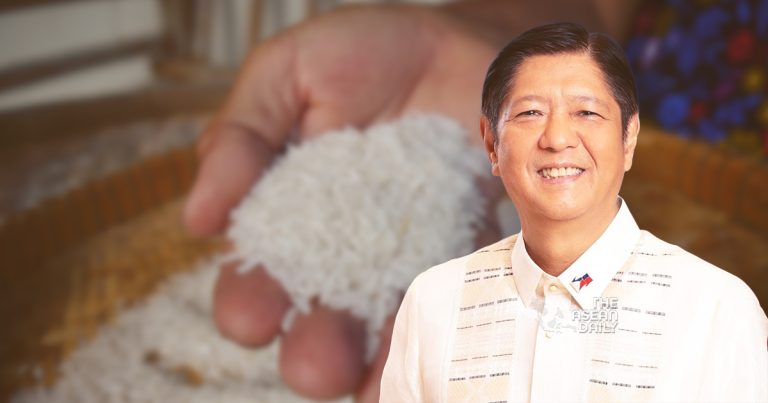2-9-2023 (MANILA) In a bid to make rice more affordable for the country’s poor population, President Marcos has implemented a nationwide price cap on the staple food.
Under Executive Order 39, signed by Executive Secretary Lucas Bersamin on August 31, the mandated price ceiling for regular milled rice is set at P41 per kilo, while well-milled rice is capped at P45 per kilo.
The President approved the recommendation of the Department of Agriculture (DA) and the Department of Trade and Industry (DTI) to impose these price ceilings, citing the need to alleviate economic strain on Filipinos, especially the underprivileged and marginalized.
The order, which became effective upon its publication in the Official Gazette, states that the price ceilings will remain in place unless lifted by the President upon the recommendation of the Price Coordinating Council or the DA and DTI.
To ensure compliance with the price ceilings, President Marcos has directed the DTI and DA to monitor and investigate abnormal price movements of rice in the market. The Department of the Interior and Local Government will provide assistance to affected retailers. The President urged citizens to report any instances of selling rice above the price ceiling to the authorities.
The decision to impose price ceilings comes in response to the current surge in retail prices of rice in the country. The DA and DTI have reported that rice supplies have reached a stable level, thanks to rice imports and an expected surplus in local production.
The move to impose price limits on rice has garnered support in the House of Representatives, with Speaker Martin Romualdez stating that it is a necessary intervention to protect Filipinos from the economic burden caused by rising rice prices. The House emphasized its commitment to stabilizing rice prices and achieving rice self-sufficiency.
However, rice traders in Bulacan expressed concern over the price cap, stating that they are at a loss due to the low price set. Some traders cited the current cost of newly harvested palay at P32 per kilo wholesale, which makes it difficult to sell rice within the price ceiling. They called for subsidies to address the situation.
The Department of Trade and Industry (DTI) announced plans to mobilize price monitors to ensure the implementation of the price ceiling. The DTI will work with local government units and the Philippine Competition Commission to prevent hoarding, price manipulation, and other unfair practices.
While the price ceiling aims to address rising rice prices and protect consumers, some experts and senators have expressed concerns about its potential negative impact. Farmers’ groups argue that the price cap could worsen the supply and price situation, leading to a decrease in rice availability. Senators have called for a comprehensive approach to address the underlying issues, such as hoarding and smuggling, to achieve long-term stability in the rice market.




